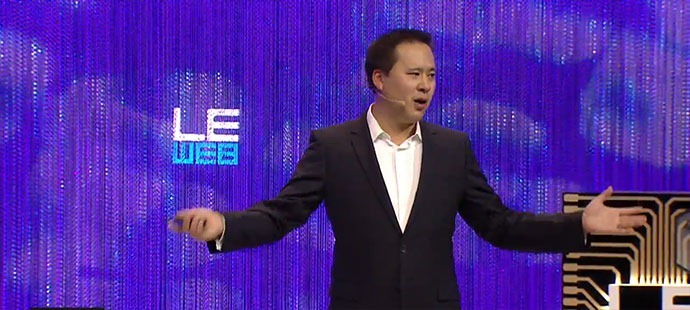
It’s the 10th annual LeWeb Paris Conference this week and Jeremiah Owyang urged corporations to get ready for the next big wave of business disruption.

It’s the 10th annual LeWeb Paris Conference this week and Jeremiah Owyang urged corporations to get ready for the next big wave of business disruption.
Today’s physical and digital world are blending. The last 10 years focused on democratizing media, resulting in the disruption of business communications, the music industry, and even government communications.
Now Owyang believes that corporations have to start getting ready the next phase:
“If you thought THAT was disruptive, this will have much bigger impact. The new democratization of the physical world means that people are now empowered — we’re moving from the ‘social media’ age to the ‘collaborative economy age’”
In other words, people today are more than just “consumers.” They are designing their own products, crowd funding and manufacturing them on their own, and then sharing them with others. Rapid advances in technology today are empowering people to get the things they need from each other. They can share products with each other many times over, or they can make them on their own.
Owyang believes this trend is accelerating fast, driven by technologies like 3D printing, the high funding of collaborative economy startups such as Uber, and new crowdfunding and financing options.
How Companies Can Benefit From The Collaborative Economy
According to Owyang, companies are starting to tap into this trend in three main ways:
Seek Purposeful Profit. Organizations are looking for ways to contribute more to the economy than just profit. Companies like Toyota are driving programs such as “100 Cars For Good” where social media users helped Toyota decide which nonprofits could do the most good with a new vehicle. Now those vehicles are on the road bringing food to the hungry, medicine to the sick, and countless other types of good.
Maximize Resources. As Lisa Gansky, author of “The Mesh: Why The Future of Business Is Sharing” puts it, “access to goods, services, and talent triumphs over ownership.” Rather than trying to work against the new business models, corporations need to work with them. Owyang gave the example of B&Q, a UK-based home improvement company, that has created “Streetclub,” an organization dedicated to “Bringing a sense of community back to your street.” (B&Q is part of the Kingfisher Group, who are using SAP HANA to optimize their business processes and provide new innovation opportunities).
Harness Crowd Innovation. According to Oywang, “companies are looking for new ideas, and struggling to get them internally.” Organizations are starting to become more focused on “outside-in innovation,” including getting ideas from customers. He cited examples such as Nordstrom reselling artisan goods via the community-based Esty market, and Nokia providing free files for 3D printing to encourage customers to create new products and experiment. Brands are starting to realize that crowds can now make products, and be part of the production, manufacturing, and supply chain.
Over the next ten years, Owyang predicts, the Crowd will function more and more like a company – and may eventually become one, where it is impossible to tell the difference between an employee and a customer:
“The big takeaway from all these three trends is that brands can be resilient by collaborating with these empowered people — and the goal is shared value.”
He urged organizations to engage, using the same strategies as the previously did with social communications: reaching out to experts and the community for help.
New CrowdCompanies venture
Owyang chose the LeWeb conference to announce his new CrowdCompanies venture, a site to help large companies tap into the collaborative economy and “create new forms of business models we’ve never seen before.” The mission of the new venture is to “bring empowered people and resilient brands together to collaborate for shared value.”
You can hear more about the venture, and why he started it, in this interview with Neville Hobson.
Owyang summarized his presentation with the following takeaways:
- Like media was socialized, the physical world is becoming democratized.
- People are empowered to make physical goods and share them — instead of buying anew.
- Big companies must use these same strategies to regain relevancy.
- Corporations that partner with the empowered people become resilient.
- The next ten years are crowd and companies, together.





